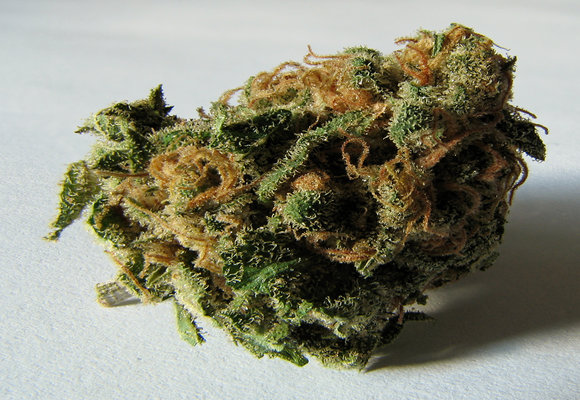Cannabis, also known as marijuana, is the preparation of the cannabis plant intended for medical and recreational use. In society goes by many names including: dope, weed, reefer, Mary Jane, pot, grass and ganja – to name a few of the thousands that it’s known by. It is often under scrutiny of the legal system within the United States of America.
Marijuana is often recreational; due to its physiological and psychoactive effects in which heighten an individual’s mood, appetite, excitement, and relaxation. It also leads to a number of other side effects such as slowed reflexes, dry mouth, feelings of paranoia and anxiety, in addition to quickened heartbeat and ‘magical thinking’. Recently Marijuana has become widely accepted in the medical field for conditions such as Cancer Chemotherapy, Glaucoma, Asthma, and AIDS. Nevertheless, this drug has become related to terms such as crime, corruption, and argued as a ‘gateway drug’ between politicians and those on the War on Drugs.
In a 2010 poll, 65 percent of Americans agreed that the War on Drugs was a failure and nearly 52 percent supported the legalization of marijuana. The War on Drugs has cost the United States billions of dollars if not more and incarcerated more than millions of people. As of 2013 62 percent of Americans supported the legalization of marijuana – and the percentage continues to grow.
A common misconception of Marijuana is association with the term ‘gateway’ drug. Most Marijuana users don’t use any other illegal drug and those who try another illicit drug rarely if ever become addicted. Another misconception is it’s relation to cancer. The long-term use of marijuana in fact leads to no other associated problems within the body. In fact Marijuana helps regulate some of the effects of cancer and other conditions. There are no long-term effects of the physiological and psychoactive effects that come with Marijuana nor are there any accounts of violent crimes, such as car accidents, as a direct result of Marijuana use. Alcohol in retrospect accounts for a direct relationship in cancer, auto accidents (such as DWIs), and may lead to the abuse of other drugs.
Francis Young, an administrative law judge for the Drug Enforcement Administration stated that, “despite [it’s 5,000-year-] long history of use and the extraordinary high numbers of social smokers, there are simply no credible, medical reports to suggest that consuming Marijuana has caused a single death.” Marijuana is reality is less harmful than any of the major drugs within society, including tobacco and alcohol. However, the criminalization of Marijuana use has led to incarnation of more than an a million people.
Unlike alcohol and other prescription (and non-prescription drugs), Marijuana is not lethal by overdosing – in fact a person would have to smoke nearly 27,000 single dutches in a day to overdose. An estimated 70 million American are currently users of tobacco, 15 million Americans are abusers of alcohol, and about 5 million are users of Marijuana. Of those 70 million there are 6 million tobacco related deaths per year (the United States accounting for 500,000 of those deaths) and of those 15 million, there are an estimated 2.5 million deaths in relation to alcohol every year. Marijuana accounts for zero.
If Marijuana is non-lethal in use, why has this substance become criminalized within society? Why are Americans so against Marijuana? The War on Drugs has been occurring since the late 1970s however, the ‘drug’ under scrutiny has changed since then. Before Marijuana, there was a little drug known as crack cocaine. It killed, it destroyed, and everyone supported a clampdown on its use – however, when the 90s struck there was a sharp decline in the use of cocaine. Society needed a new drug, a new scapegoat, a new evil for society to identify as unacceptable behavior; Marijuana became that drug. Thus, the beginning of a new era on the War on Drugs began.
In 2012 it was found that police made one Marijuana arrest every 42 seconds – that’s an estimated 1,552,432 per year – with a $10 billion dollar annual pay of American tax dollars in order to process these individuals, amongst other necessities in the War on Drugs. That’s a 400 percent increase in the number of arrest per year in relation to Marijuana – where only about 33 arrest per year accrued within the 1980s. A majority of these arrests are only for possession. Meanwhile states like California are bringing in $14 million dollars in revenue in the distribution of medical Marijuana. If marijuana is legalized the United States can tax the revenue coming in and create more money circulating in the economy.
As of 2013 Marijuana exceeds the number arrest for violent crimes by more than 100,000 arrests. Pot is now more corrupting to society than domestic violence, rape, murder, and other violent crimes according to the general public. In retrospect 15 grams of marijuana can lead up to 15 to life in prison – that’s the same punishment someone charged with first degree murder would have to serve. Currently, the government is trying to lessen the punishment of those in possession of Marijuana as a fine rather than prison time.
20 States have already enacted laws in order to legalize the use of medical marijuana including: Alaska, Arizona, California, Colorado, Connecticut, The District of Columbia, Delaware, Hawaii, Illinois, Maine, Massachusetts, Michigan, Montana, Nevada, New Hampshire, New Jersey, New Mexico, Oregon, Rhode Island, Vermont, and Washington. 4 States are currently pending its legalization: New York, Ohio, Minnesota, and Pennsylvania.
In the next couple of years a majority of the country will have legalized the use of medical Marijuana. As the country becomes more accepting of it use and continues to decriminalize its practice, perhaps there will be more support for recreational use and end to undue imprisonment.


